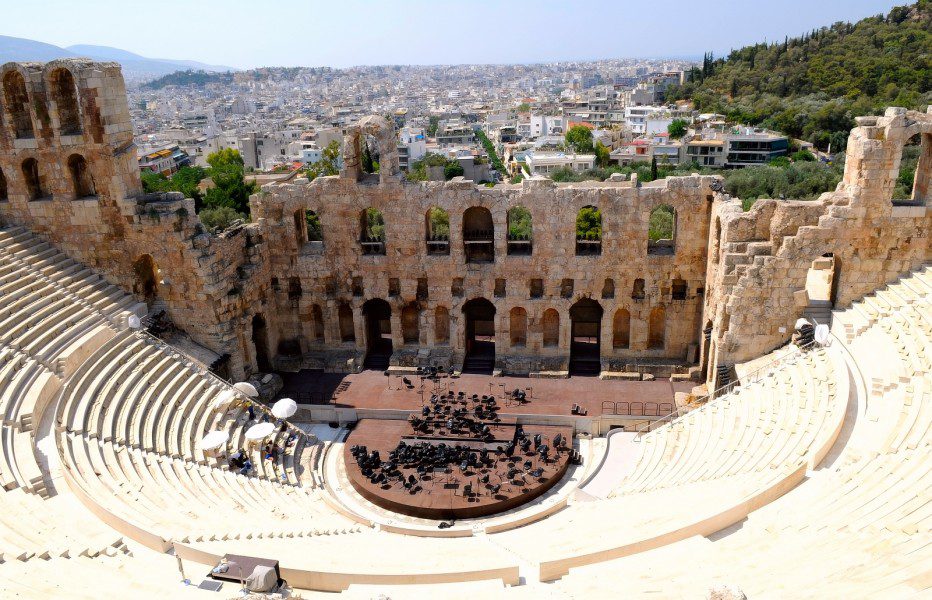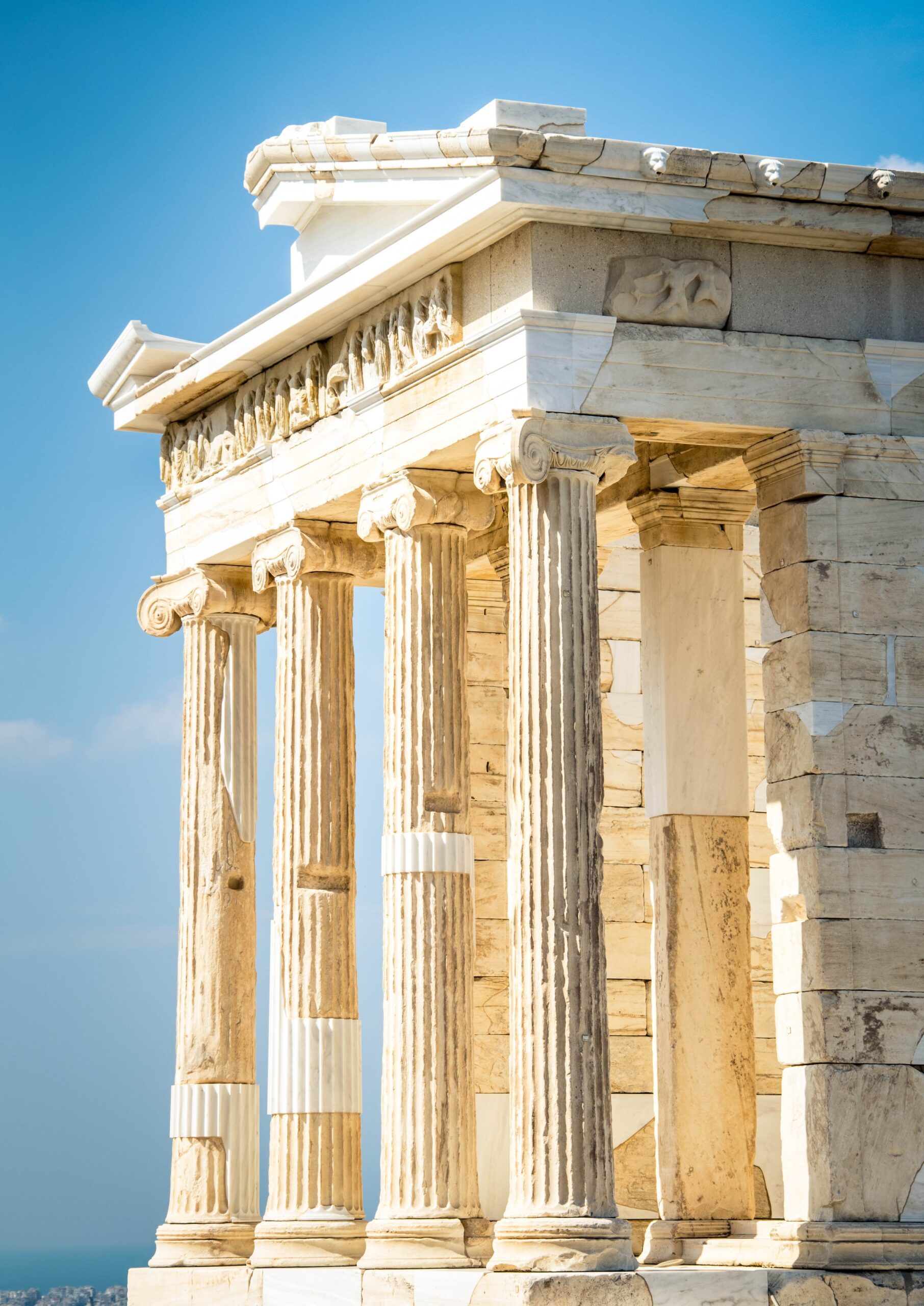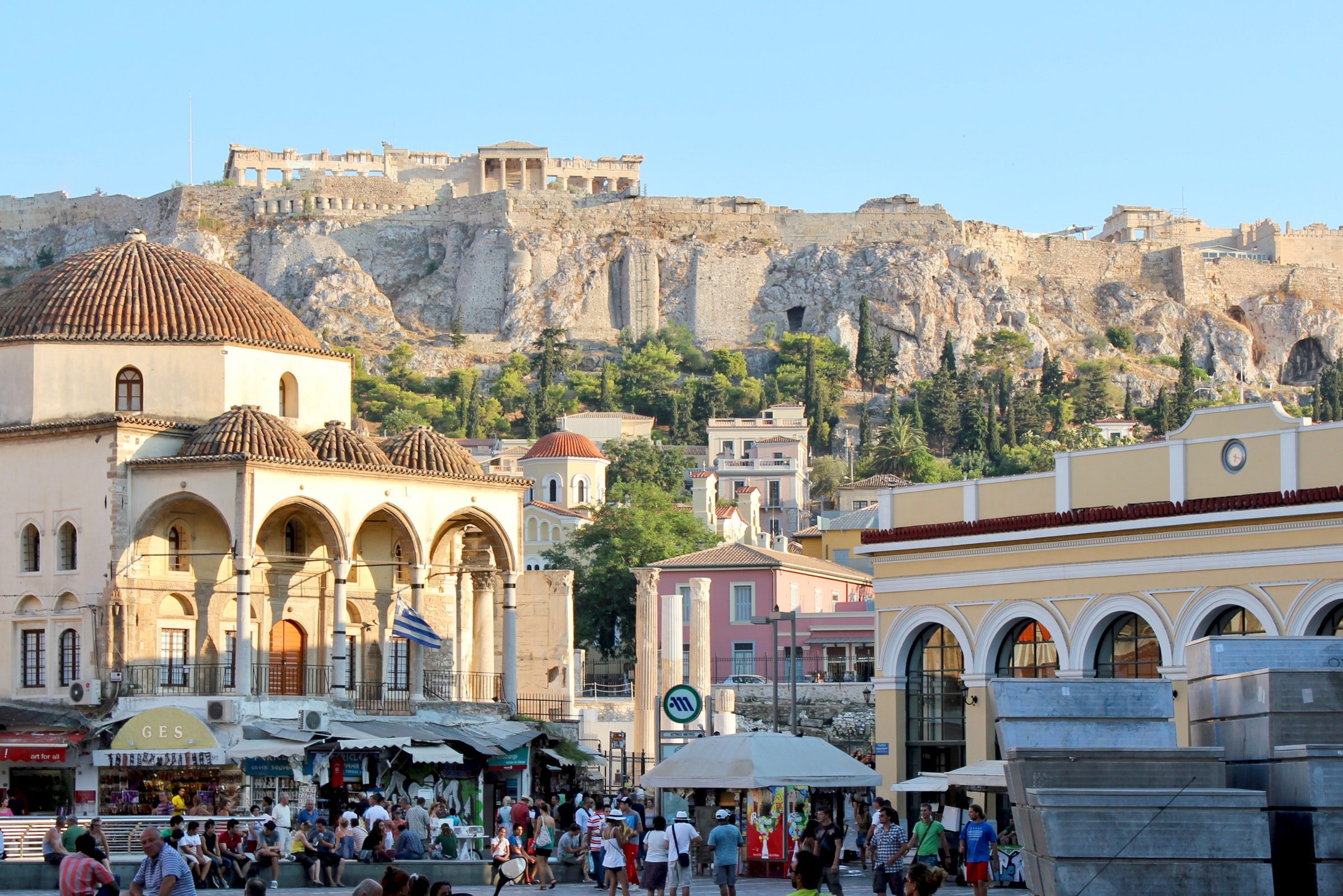Exploring the History and Architecture of Athens
Introduction
Athens, the capital of Greece, is one of the world’s oldest cities with a rich history of over 3,400 years. It’s a city that combines ancient history with modern-day amenities and is a must-visit destination for anyone interested in history and architecture. Athens has much to explore, from the Acropolis to the modern-day street art scene.
Hand-Picked Greece Tours
Greece is a country that has something for everyone. From the rich history and culture of the ancient civilization to the stunning beaches and islands, Greece is a destination that will leave you with unforgettable memories. If you’re looking for a vacation package to Greece, we have many options available here.
With unbeatable deals and discounts, your money goes further. Don’t miss out on the opportunity to experience the local olive oil, ouzo, music, dance, and outdoor adventure that Greece has to offer. Book your trip today!
Best of Turkey and Greece with 3-night cruise (With flight from USA – Small Group)
Didn’t you find your dream trip? Discover your perfect vacation package using our convenient search and filter options, tailor-making a journey that captures world’s unique beauty and rich heritage just for you.
History and Culture
The Acropolis is a rocky hill overlooking the city, and it was once the site of several ancient temples, including the famous Parthenon. The Acropolis symbolized Athenian power and wealth during the Golden Age in the 5th century BC. Today, visitors can explore the ruins of the ancient temples and take in the breathtaking views of Athens below.
Another important historic site in Athens is the Ancient Agora, a large marketplace and meeting place at the heart of Athenian democracy. Visitors can see the remains of the market, temples, and government buildings, as well as the famous Stoa of Attalos, a reconstructed building that houses a museum of ancient artifacts.

The National Archaeological Museum is another must-see destination for history and culture enthusiasts. It is one of the largest and most important museums in Greece, with over 20,000 artifacts from ancient Greek history, including sculptures, pottery, jewelry, and more.
In addition to its historical sites, Athens is also a hub of modern-day culture. The city has a thriving arts scene, with numerous theaters, galleries, and music venues. The Odeon of Herodes Atticus is an open-air theater that hosts ancient Greek drama and music performances. At the same time, the Athens Concert Hall is a modern venue for classical and contemporary music.
Athens is also known for its vibrant culinary scene. Visitors can sample traditional Greek dishes like moussaka, souvlaki, and spanakopita at local tavernas or try modern Greek cuisine at upscale restaurants. The Central Market is a bustling hub of food and culture, with vendors selling fresh produce, meat, fish, and spices.
Architecture is another vital aspect of Athens’ culture and history. The city is known for its mix of ancient and modern architecture, with historic buildings alongside contemporary structures. The neoclassical buildings of the 19th century, inspired by the ancient Greek style, can be seen in neighborhoods like Plaka and Monastiraki. Landmarks like the Athens Tower and the Athens Concert Hall represent the modernist architecture of the 20th century.

In conclusion, Athens has a rich and multifaceted history and culture. Athens has something for everyone, from its ancient sites and museums to its modern arts scene and culinary offerings. Its unique blend of ancient and contemporary architecture is a testament to the city’s enduring place in Western civilization.
Architecture
Athens is a city with a rich architectural heritage that spans thousands of years. The city is known for blending ancient and modern architecture, reflecting its long and storied history.
One of the most iconic examples of ancient Greek architecture is the Parthenon, located on the Acropolis. The Parthenon is a temple dedicated to the goddess Athena, and it was built in the 5th century BC during Athens’ Golden Age. The temple is known for its Doric columns, intricate friezes, and stunning sculptural decorations.

Another important example of ancient Greek architecture in Athens is the Temple of Olympian Zeus, once the largest temple in Greece. The temple was built over several centuries and was finally completed by the Roman emperor Hadrian in the 2nd century AD. Today, only a few temple columns remain, but they provide a glimpse into the grandeur of ancient Greek architecture.
In addition to its ancient architecture, Athens is known for its neoclassical buildings from the 19th century. These buildings were inspired by the ancient Greek style and were designed to reflect the city’s classical heritage. Many of these buildings can be found in the neighborhoods of Plaka and Monastiraki. Some notable examples include the University of Athens, the Academy of Athens, and the National Library of Greece.
The modernist architecture of the 20th century is also represented in Athens. The Athens Tower, also known as the OTE Tower, is a landmark building in the city. It was built in 1971 and was the tallest building in Greece at the time. The tower’s unique design, with its sloping sides and asymmetrical shape, reflects modernist architecture’s bold and innovative spirit.

Finally, Athens is also home to several contemporary buildings that showcase the city’s dynamic and evolving architectural landscape. The Stavros Niarchos Foundation Cultural Center, designed by renowned architect Renzo Piano, is a state-of-the-art cultural complex with a library, an opera house, and a park. The Onassis Cultural Center, designed by French architect Christian de Portzamparc, is another critical contemporary building that hosts exhibitions, performances, and events.
In conclusion, Athens’ architecture is a rich tapestry that weaves thousands of years of history and culture together. From its ancient temples to its neoclassical buildings and modernist landmarks, Athens is a city that reflects the best of ancient and modern architecture. Visitors to the town can experience this unique architectural heritage in the city’s museums, historic sites, and contemporary buildings.
What to See and Do
In addition to the historic sites and architecture
Athens is a city overflowing with history, culture, and art. In addition to the world-famous Acropolis and its monuments, Athens has a wealth of museums, galleries, and cultural events, making it a must-visit destination for any traveler.
One of Athens’s most popular tourist destinations is the Acropolis, an ancient citadel located on a rocky outcrop above the city. The site includes the Parthenon, the Temple of Athena Nike, the Propylaea, and the Erechtheion, some of the most impressive examples of ancient Greek architecture. Visitors can take a guided tour of the Acropolis or explore the site on their own, taking in the stunning views of the city from the top.
Another must-see attraction in Athens is the Acropolis Museum, located at the foot of the Acropolis. The museum is home to a vast collection of ancient Greek artifacts, including sculptures, vases, and other objects excavated from the Acropolis and other sites around Greece. The museum is also home to a stunning glass-floored gallery that allows visitors to see the ancient ruins below.

Athens is also home to several other museums that showcase the city’s rich history and culture. The National Archaeological Museum is the most significant archaeological museum in Greece and is home to a vast collection of ancient artifacts, including the famous Mask of Agamemnon. The Benaki Museum is another important museum in Athens dedicated to Greek art and culture, with collections from ancient times to the present day.
For those interested in contemporary art and culture, Athens has a vibrant and diverse arts scene that is constantly evolving. The city is home to several galleries and exhibition spaces, including the DESTE Foundation, the National Museum of Contemporary Art, and the EMST – National Museum of Contemporary Art. Visitors can also attend cultural events and festivals throughout the year, such as the Athens Festival, which showcases theater, music, and dance performances in venues throughout the city.
Athens is also known for its bustling markets and shopping districts, where visitors can find everything from traditional Greek souvenirs to high-end fashion and designer goods. The Monastiraki Flea Market is a popular tourist destination, offering everything from antiques and vintage clothing to handmade crafts and jewelry. The Ermou shopping district is another popular destination for shoppers, delivering a range of high-end fashion boutiques and designer stores.
Finally, no visit to Athens is complete without sampling the city’s world-famous cuisine. Greek cuisine is known for its fresh, healthy ingredients and bold flavors, and Athens has a wealth of restaurants, cafes, and street food vendors that offer a range of delicious dishes. Visitors can sample traditional Greek dishes such as moussaka, souvlaki, and spanakopita, as well as a range of international cuisine.

Tips for Exploring Athens
Here are some tips for exploring Athens:
- Plan ahead: Athens is a bustling city with a lot to see and do, so it’s a good idea to plan your itinerary to make the most of your visit. Decide which attractions you want to see, book any tours or tickets in advance, and be prepared for the crowds, especially during peak season.
- Wear comfortable shoes: Athens is a city of hills and cobblestone streets, so it’s essential to wear comfortable shoes for long periods. Sneakers or walking shoes are a good choice; be sure to bring a hat and sunscreen to protect yourself from the sun.
- Take a guided tour: While it’s certainly possible to explore Athens on your own, taking a guided tour can be a great way to learn more about the city’s history, culture, and architecture. Many different tours are available, from walking tours of the city’s ancient landmarks to food and wine tours showcasing the best Greek cuisine.
- Explore beyond the main attractions: While the Acropolis and other ancient ruins are undoubtedly must-see destinations in Athens, the city has much more to offer. Take some time to explore neighborhoods such as Plaka, Monastiraki, and Kolonaki, which provide a range of shops, cafes, and restaurants. Visit the local markets and bazaars to experience the city’s vibrant atmosphere.
- Try the local cuisine: Greek cuisine is world-famous for its fresh, healthy ingredients and bold flavors, and Athens has a wealth of restaurants and food vendors that offer a range of delicious dishes. Try some traditional Greek dishes such as moussaka, souvlaki, and spanakopita, as well as a range of international cuisine. Don’t forget to sample some of the city’s famous street food, such as gyros and souvlaki.
- Get off the beaten path: While the main attractions in Athens are worth visiting, some of the best experiences can be found. Stroll through the lesser-known neighborhoods of Athens, visit local museums and galleries, or take a day trip to one of the nearby islands.
- Be respectful: Finally, when exploring Athens, respecting the local culture and customs is essential. Dress modestly when visiting churches and other religious sites, be mindful of your behavior in public places, and follow any local customs or traditions you may encounter.

In Conclusion
Athens is a city with a rich history and a vibrant modern-day culture. From the Acropolis’s ancient temples to its modern-day neighborhoods’ colorful street art, there is much to see and do in Athens. Whether you are interested in history, architecture, food, or shopping, Athens has something for everyone.













